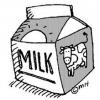Good Tow Cars?
Announcements
-
Similar Content
-
Latest Posts
-
these guys recommended to me and supplied custom 4 inch mufflers, couldn't be happier. They will spec a muffler to your preferred level of sound and know RB's well. https://spmufflers.com.au/
-
Yeah this used to happen to me every year and a quick call would at least raise the agreed value back up / reduce the premium, but usually both. That said for the first time on the renewal this year our agreed values went up or stayed the same over the fleet and the premium came down so that was a nice surprise.
-
I don't even go that hard core. I just say "how do you expect me to stay, when you increase my premium, and reduce the value of the car?" Then play a game of shut the f**k up. Most of the time it's a computer that did the adjustment, and the people will happily change it around for you.
-
You just say that the premium increase seems particularly excessive (no pun intended) and that the value decrease seems unwarranted. You say that it's not 2005 any more, and that these days Skylines are generally owned and insured only by those that have demonstrated an ability to keep them in one piece across decades, and are therefore not the horrible risk that used to be assumed. etc.
-
Have a look at JS Performance Garage, just did a bit of work on a 32 GTR.
-









Recommended Posts
Create an account or sign in to comment
You need to be a member in order to leave a comment
Create an account
Sign up for a new account in our community. It's easy!
Register a new accountSign in
Already have an account? Sign in here.
Sign In Now